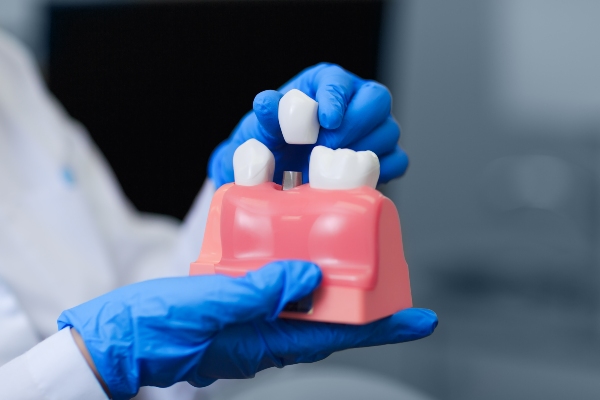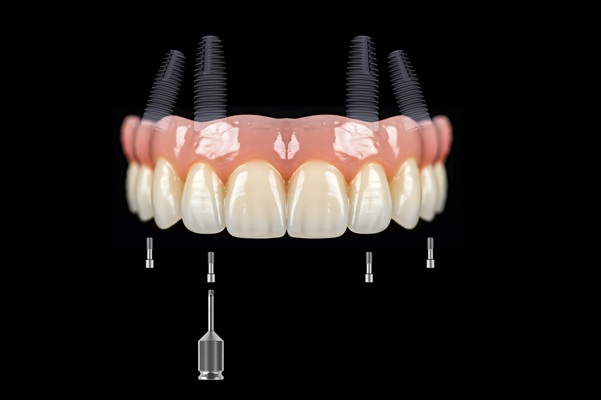Assessing Eligibility for Dental Implants From a Periodontist’s Perspective

Periodontists work closely with the supportive structures of the mouth, such as the gums, so it likely comes as no surprise that dental implants are among the most common treatments that they can provide. Dental implants can be an exciting possibility for those seeking long-term tooth replacement options that stimulate their gums just like natural tooth roots.
However, not everyone is a good candidate for a dental implant. Here is how periodontists assess eligibility for implants and what patients should know about the procedure as a whole.
Who is a good candidate for dental implants?
A dental implant is a frequent choice for periodontists who need to replace a patient’s missing tooth. However, to receive implants, patients must meet a few baseline criteria. To understand why these matter, patients must know how implants work, from before they are installed to the recovery period.
How dental implants work
A dental implant is a false tooth that is affixed to a metal rod embedded in the jawbone. Since the rod fuses with the bones of the jaw, it exerts the same pressure as natural tooth roots, which helps keep the face and bones healthy over time. Once the metal rod is placed into the jaw, an abutment is affixed to the top, which means the patient can have a natural-looking tooth permanently installed into their dental arch. Patients do not need to (and in fact, cannot) remove the implant and should clean it just like any other tooth.
The procedure and recovery process
First, the periodontist will make an incision into the gums to access the bone where the implant will be installed. Then, they will create a small hole into which the implant rod is placed, typically by screwing. After this step is complete, the periodontist will close the incision in the gums, and the patient must wait for osseointegration — the process in which the bone fuses around and incorporates the metal insert.
Next, recovery can begin. Most patients will need to wait about six months for osseointegration to complete. In the stages immediately after the procedure, they will usually take over-the-counter pain relief and stay on a soft diet while the incision site heals. After this time, they can go about their normal life while the post solidifies into the jawbone.
Who is eligible for dental implants?
Since dental implants require the installation of a metal rod, some people are better candidates for implants than others. When assessing eligibility, a periodontist will consider:
- Whether the person has enough bone tissue to support the implant
- Whether substantial tooth decay could weaken the bone later
- Whether the patient suffers from periodontitis that could affect healing
- Whether the patient has a history of slow or incomplete healing from surgery
- How many teeth the patient needs to have replaced
Explore dental implants for tooth replacement
Dental implants can effectively replace missing teeth, but not everyone is a good candidate for them. Contact our office to explore whether you are eligible for dental implants and to schedule an appointment to get started on the journey to replacing your missing teeth.
Are you considering dental implants in the San Diego area? Get more information at https://www.torreyhillsperio.com.
Check out what others are saying about our dental services on Yelp: Dental Implants in San Diego, CA.
Recent Posts
Appearance may be one of the first things people think about when it comes to tooth replacement. However, improved appearance is just one of the many benefits of replacing missing teeth. Tooth replacement can be key to improving not only how you feel about your smile but also boosting your oral health.Whether one chooses dentures,…
Many patients with missing teeth find themselves looking at implants as a solution. dental implants have become a popular tooth replacement option in recent years that offers numerous benefits for a patient's oral health. Different types of prostheses are used with implants for different severities of tooth loss.Implants are nowadays one of the most common…
Are you considering getting a dental implant from a periodontist? Dental implants, also known as endosseous implants or fixtures, are a great solution for people who have lost teeth due to injury, disease, or decay. They can provide a long-term, stable solution for replacing missing teeth, and the process of getting an implant from a…
While many understand how beneficial dental implants are, some people with missing teeth may hesitate, unsure if it is the right option for them. It is helpful to better understand each step of the dental implants process from a periodontist when deciding on treatment. Each patient is unique and may have a slightly different experience with…


